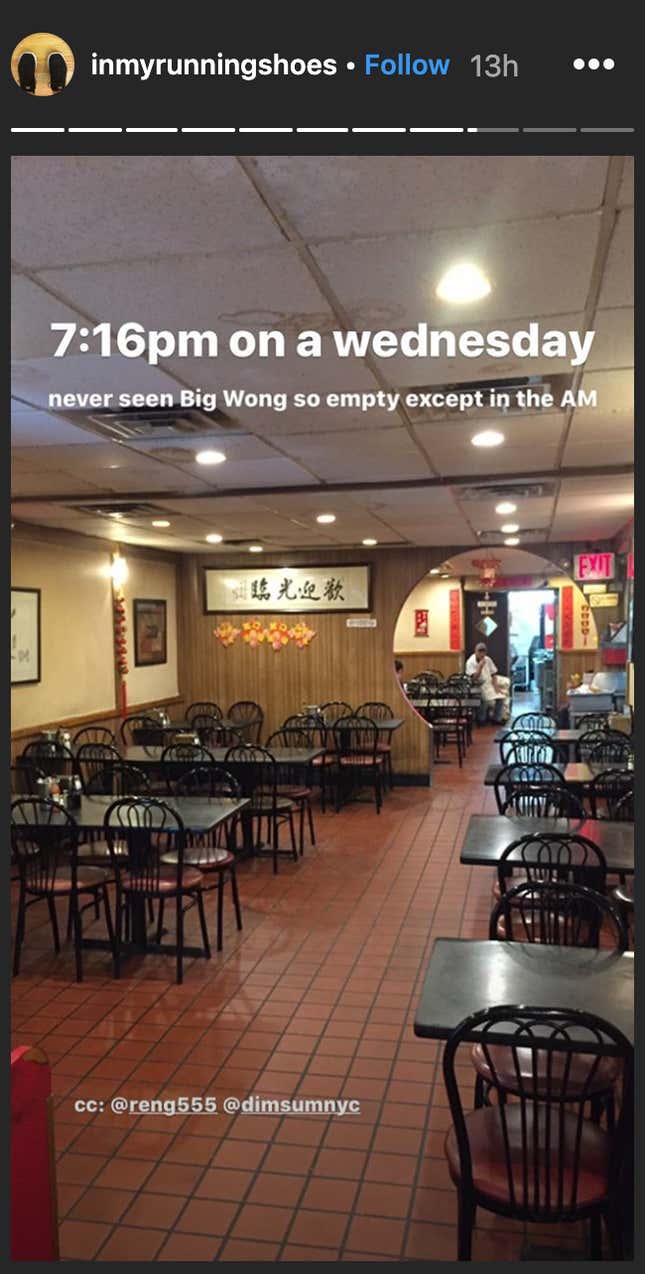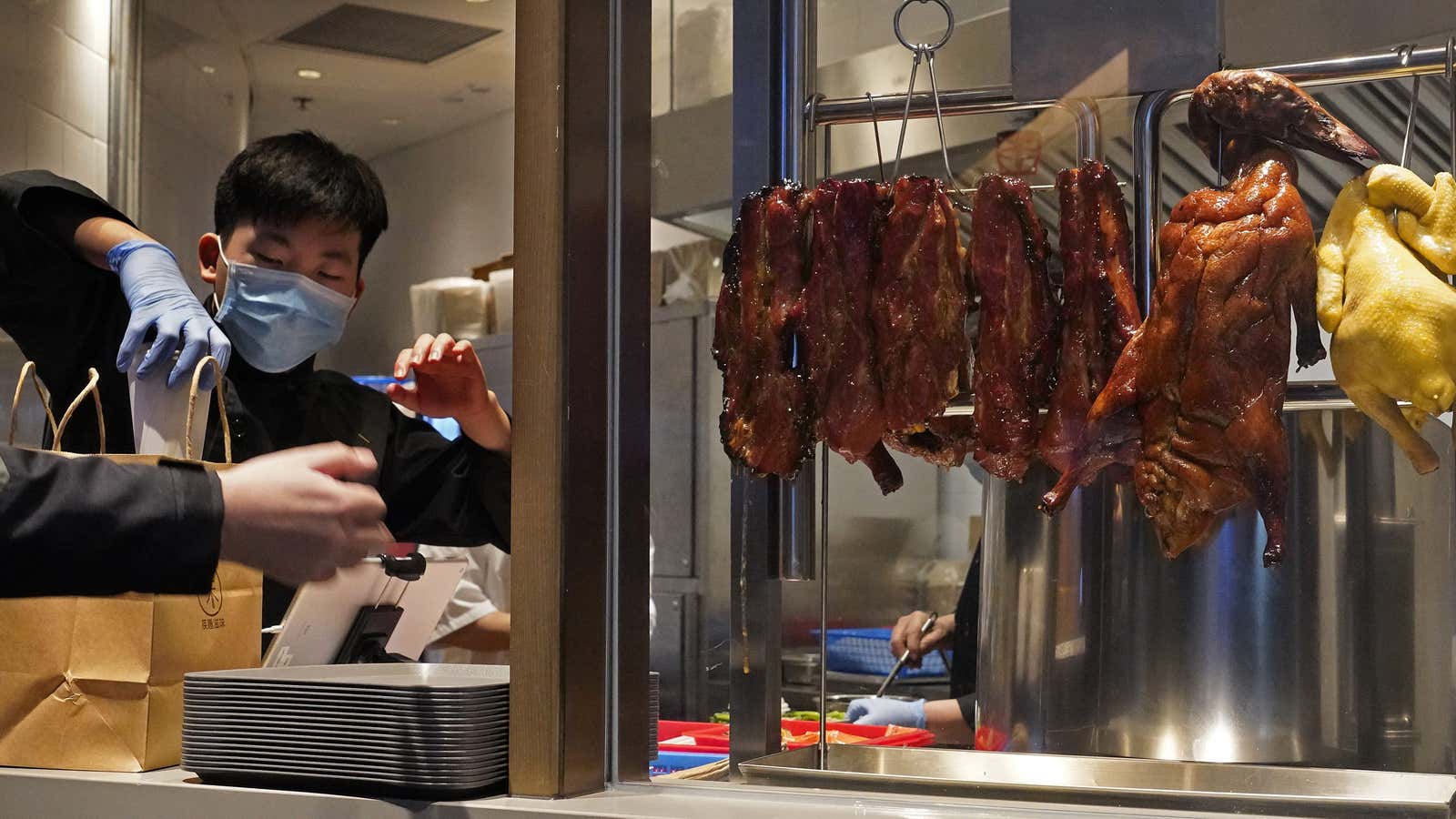AA Bakery and Cafe in San Francisco’s Chinatown usually has customers out the door for its egg tarts and pineapple buns. But a rumor about an employee said to have contracted coronavirus has sent prospective customers scurrying elsewhere, according to local CBS affiliate KPIX. The bakery’s owner, Henry Chang, says none of his workers are ill. Coronavirus fears have gripped the neighborhood, though. Foot traffic in the area is down by more than 50%, local residents and merchants estimate.
You’ll find the same thing happening all over the world: From Italy to Philadelphia, similar fears have driven customers away from Chinese districts—and their businesses. In some cases, these fears extended to Chinese customers, too. An ice-cream shop in Rome, for example, reportedly taped a sign to its glass door, with a warning in English and Chinese: “Due to international safety measures, all people coming from China are not allowed to have access to this place.”
These concerns are generally baseless, arguably racist, and run totally contrary to the advice of public health bodies, including the World Health Organization (WHO). But for businesses, they’re all too real—as is their tangible impact on the bottom line.
At New York’s Hwa Yuan, an upscale Sichuan restaurant, business over the weekend was down by much as 40%, despite it being Lunar New Year, the owner told the local Fox station. “A week ago really, people started to get afraid,” Chen Tang said. “It’s really affected our business.” Golden Unicorn, a bustling Cantonese eatery nearby, reported large cancellations from tour groups. And at the iconic Nom Wah Tea Room, where TripAdvisor reviews ordinarily note that customers should “be prepared to queue,” coronavirus fears have left the restaurant bereft of customers, according to posts on co-owner Wilson Tang’s Instagram story. “Another slow day in Chinatown,” he wrote.

In London, meanwhile, the city’s best Chinese restaurants have reported quiet streets and empty tables. At Jinli Restaurant, cancellations began to pour in almost as soon as coronavirus was confirmed in the UK. Bookings at the chain’s four restaurants are down by 50%, general manger Martin Ma told the BBC, resulting in an estimated loss of $19,000 (£15,000) over the weekend alone at the flagship location. Other Chinatown restaurateurs reported quiet restaurants and fewer tourists than usual. “People are scared,” one told the broadcaster. “They are staying away.”
As Foreign Policy reports, there’s a long, sad history of Westerners associating Chinese people, and their food, with disease or a lack of cleanliness. An 1854 story from the New York Daily Tribune described Chinese people as “uncivilized, unclean, filthy beyond all conception.”
It hasn’t taken much to ignite some of the same prejudices, albeit in a different format. On a video posted to Twitter of a young Asian woman eating geoduck, a large clam native to North America, one commentator observed: “This why they bringing viruses.”
